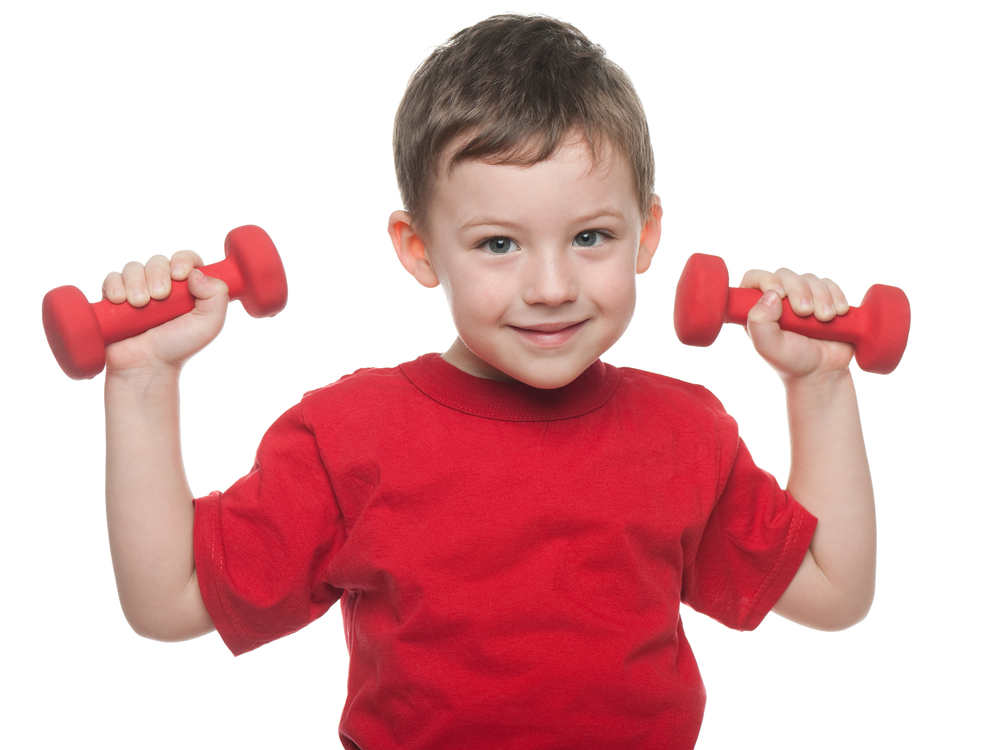If you’re a parent who doesn’t like the idea of your child doing strength training, it’s time to think again. Medical research shows that it not only improves fitness, it’s good for the health of children, from primary school-age through to teenagers.
Strength training for children doesn’t mean they’re like Olympic weightlifters, who do sharp lifts of a maximum weight, instead it involves light resistance and training in a controlled manner. Also known as resistance training, it can include lifting weights, but also uses large, rubber bands or your child’s own body weight to exert force.
Health benefits
A common fear of parents is that strength training is dangerous due to injuries and stunting growth. But in fact, children who regularly play sport and do strength training have less risk of a sports injury and for all children, including inactive kids, improving strength helps their bones grow and increase mass.
Additional health benefits for your child may include:
- reducing excess weight
- decreasing risk factors for heart and artery disease
- improving mental health
- improving sport skills
- building a foundation for being active later in life
Before you child starts
Before starting strength training, your child should be seen by a qualified professional to design and supervise a program to ensure it’s suitable to your child’s needs, goals and abilities. This includes taking into account that children of the same age vary markedly in their physical strength and maturity.
For assistance, speak to your GP or find an accredited exercise physiologist in Australia at www.essa.org.au


